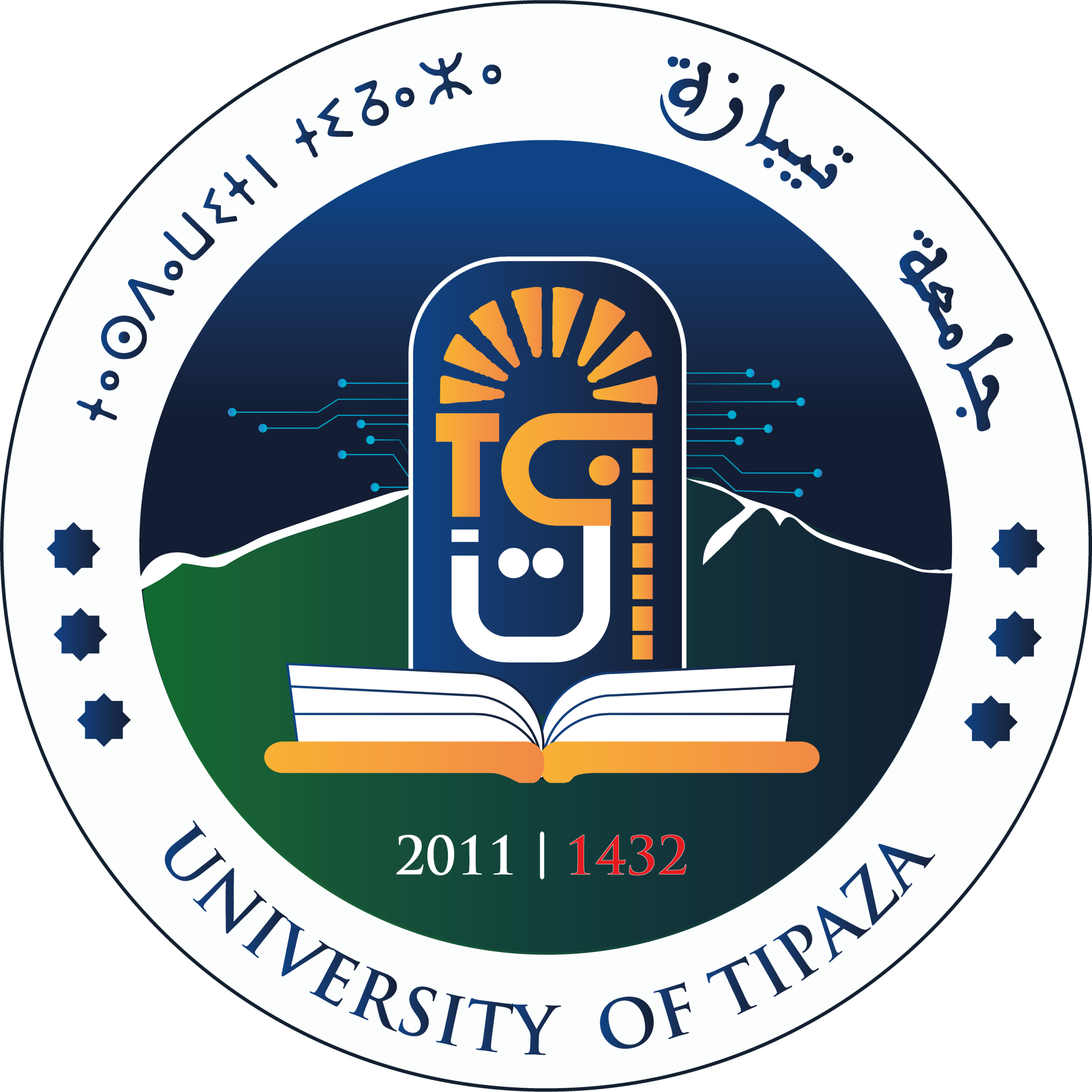University of Tipaza جامعة تيبازة
Indexation 579.43
Ouvrages de la bibliothèque en indexation 579.43 (1)


 Affiner la recherche Interroger des sources externes
Affiner la recherche Interroger des sources externes


| Titre : |
Étude des protéases extracellulaires d'origine bactérienne à caractères industriels et biotechnologiques |
| Type de document : |
texte imprimé |
| Auteurs : |
Lina Rahil Brahimi, Auteur ; Aida Beniche, Auteur ; Abdelkrim Chaida, Auteur |
| Editeur : |
Tipaza [Algérie] : Centre universitaire Morsli Abdellah - Tipaza- |
| Année de publication : |
2024/2025 |
| Importance : |
p.96 |
| Présentation : |
couv. en noir et blanc ., ill., fig.,tabl. |
| Format : |
30 cm |
| Accompagnement : |
CD |
| Note générale : |
Bibliographie: p75-85.
Annexes: p87-96. |
| Langues : |
Français (fre) |
| Catégories : |
Microbiologie
|
| Mots-clés : |
Extracellular proteases Microbial enzymes Brevibacillus laterosporus Biocatalysts Biotechnology Effluent treatment Bioremediation pH Temperature Casein. |
| Index. décimale : |
579.43 |
| Résumé : |
Extracellular proteases of microbial origin are enzymes secreted by microorganisms, capable of catalyzing protein degradation and presenting growing interest for sustainable biotechnological applications. This thesis aims to screen a bacterium capable of producing an extracellular protease and evaluate its industrial potential, particularly in effluent treatment.
The methodological approach encompassed the screening and identification of a bacterial strain designated S8 with its ability to produce extracellular proteases, based on phenotypic and biochemical tests including API 50 CHB galleries. The evaluation of enzyme production was performed qualitatively on solid medium using the milk agar technique, where proteolytic activity was estimated by the formation of a hydrolysis halo around the colony. Quantitatively, enzyme activity was measured by following growth and production kinetics through the study of pH and temperature effects over 4 days of incubation. A contribution to the study of the effect of this strain and its enzymatic extract on the treatment of industrial effluents was carried out in this context.
The results obtained from the biochemical study showed a pre-characterization and the affiliation of strain S8 to the genus Brevibacillus laterosporus. Strain S8 demonstrated the ability to produce interesting extracellular proteases. Optimal enzymatic activity was observed at pH 10.5 and 37°C, reaching a maximum value of 0.0329 U/mL. The study also revealed that the application of strain S8 or its enzymatic extract to industrial discharges induces significant improvements in water quality: an increase in dissolved oxygen and a notable reduction in conductivity.
This study is an important contribution to the study of extracellular proteases of bacterial origin with industrial characteristics. This pilot investigation for the treatment of industrial effluents with preliminary results should be supported by more in-depth research involving advanced techniques.
This strain and its enzymatic extract can be exploited as an alternative biological means to conventional physico-chemical methods for the treatment of industrial effluents.
|
Étude des protéases extracellulaires d'origine bactérienne à caractères industriels et biotechnologiques [texte imprimé] / Lina Rahil Brahimi, Auteur ; Aida Beniche, Auteur ; Abdelkrim Chaida, Auteur . - Tipaza [Algérie] : Centre universitaire Morsli Abdellah - Tipaza-, 2024/2025 . - p.96 : couv. en noir et blanc ., ill., fig.,tabl. ; 30 cm + CD. Bibliographie: p75-85.
Annexes: p87-96. Langues : Français ( fre)
| Catégories : |
Microbiologie
|
| Mots-clés : |
Extracellular proteases Microbial enzymes Brevibacillus laterosporus Biocatalysts Biotechnology Effluent treatment Bioremediation pH Temperature Casein. |
| Index. décimale : |
579.43 |
| Résumé : |
Extracellular proteases of microbial origin are enzymes secreted by microorganisms, capable of catalyzing protein degradation and presenting growing interest for sustainable biotechnological applications. This thesis aims to screen a bacterium capable of producing an extracellular protease and evaluate its industrial potential, particularly in effluent treatment.
The methodological approach encompassed the screening and identification of a bacterial strain designated S8 with its ability to produce extracellular proteases, based on phenotypic and biochemical tests including API 50 CHB galleries. The evaluation of enzyme production was performed qualitatively on solid medium using the milk agar technique, where proteolytic activity was estimated by the formation of a hydrolysis halo around the colony. Quantitatively, enzyme activity was measured by following growth and production kinetics through the study of pH and temperature effects over 4 days of incubation. A contribution to the study of the effect of this strain and its enzymatic extract on the treatment of industrial effluents was carried out in this context.
The results obtained from the biochemical study showed a pre-characterization and the affiliation of strain S8 to the genus Brevibacillus laterosporus. Strain S8 demonstrated the ability to produce interesting extracellular proteases. Optimal enzymatic activity was observed at pH 10.5 and 37°C, reaching a maximum value of 0.0329 U/mL. The study also revealed that the application of strain S8 or its enzymatic extract to industrial discharges induces significant improvements in water quality: an increase in dissolved oxygen and a notable reduction in conductivity.
This study is an important contribution to the study of extracellular proteases of bacterial origin with industrial characteristics. This pilot investigation for the treatment of industrial effluents with preliminary results should be supported by more in-depth research involving advanced techniques.
This strain and its enzymatic extract can be exploited as an alternative biological means to conventional physico-chemical methods for the treatment of industrial effluents.
|
|  |
Exemplaires(1)


 Affiner la recherche Interroger des sources externes
Affiner la recherche Interroger des sources externesÉtude des protéases extracellulaires d'origine bactérienne à caractères industriels et biotechnologiques / Lina Rahil Brahimi
 579.01
579.01 




